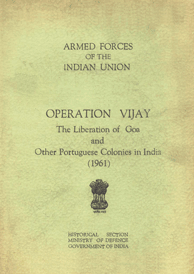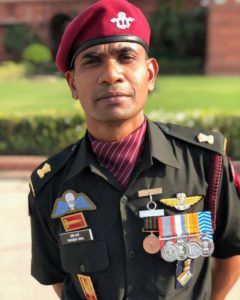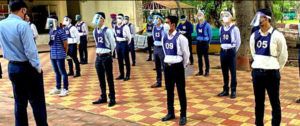
On 18th Dec 1961, Operation Vijay was put into action. Indian troops crossed the border of Goa. There were continuous land, air, and sea strikes for more than 36 hours, resulting in the uncompromisable surrender by Portuguese forces on 19th Dec.
But the question is, why it was in 1961, after 14 years of Independence of India?
As we know, Goa is a small state, on the western coast of India. Despite its size, it is a major trade centre which always attracts merchants and traders.
Because of its geolocation, Goa also attracted influential dynasties like the Bhojas, the Shatavahanas, the Mauryas, and so many.
In 1350 AD, Goa was captured by the Bahmani Sultanate. But, in 1370, the Great Vijayanagar empire re-conquered the area. They ruled it for almost a century. In 1469, the Bahmani Sultanate captured it again.
In 1510, Portuguese admiral Afonso de Albuquerque attacked Goa. But Ismail Adil Shah, the ruler of that time, was able to defeat him. Albuquerque returned with a reinforced and took possession again.
With Goa, Albuquerque agreed to lower yearly dues and taxes. The first Portuguese tent was set up in the East. He left much of the culture and custom of the villages untouched, abolishing the only sati. Goa’s municipal corporation had direct contact with the king of Portugal.
Although Goa flourished in the early years of the Portuguese conquest, they saw a decline in the 17th century. During the Second World War, Goa remained neutral, like Portugal.
In the year 1947, India became Independent, and all states got united, but Goa remains under the control of Portugal. Prime Minister, Jawaharlal Nehru proposed that Goa and other Portuguese holdings indulge in India, but Portugal refused.
In the year 1954, unarmed Indians took over Dadra and Nagar Haveli, that lie between Gujarat and Maharashtra. Portugal reported the situation to the International Court of Justice at The Hague. The final judgment given in 1960 stated Portugal’s right to the enclaves! But, it also stated that India had the right to deny Portugal’s access to the enclaves over the Indian Territory.
On 1st Sep 1955, the Indian consulate in Goa was closed. Nehru said that his government would not tolerate the Portuguese presence in Goa. India instituted a blockade against Goa, Daman, and Diu, to force the Portuguese out.
In the meantime, there were also numerous representations to the Portuguese Salazar regime and attempts to highlight the issue before the international community.
But, as the status quo was maintained, on December 18, 1961, the Indian Military invaded Goa, Daman, and Diu, amidst Portuguese resistance. It was called “Operation Vijay”. The Portuguese armed forces had been instructed to either defeat the enemy or die. Hence, though a cease-fire had been declared, no official truce was signed.
The Portuguese army offered feeble resistance, as they lacked heavy weapons, and fielding 3,300 soldiers in front of a heavily armed Indian force of over 30,000 troops was impossible.
India formally annexed the territories, and Portugal’s control in Goa ended in 1961.






